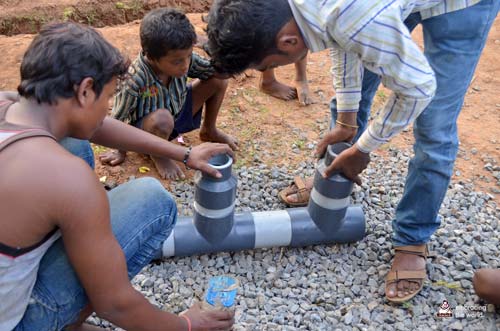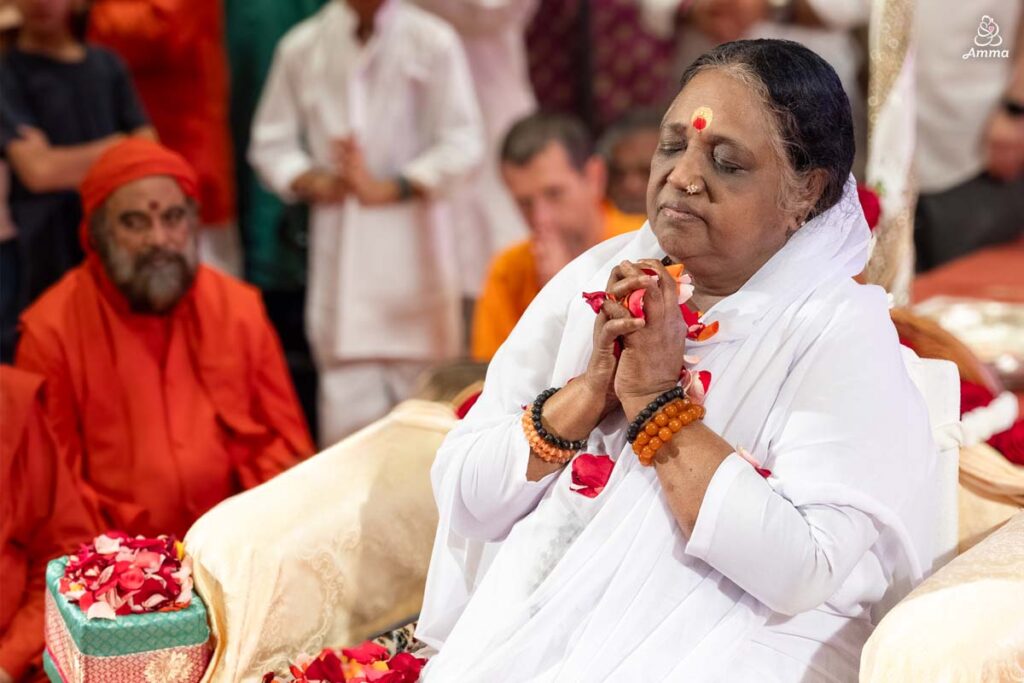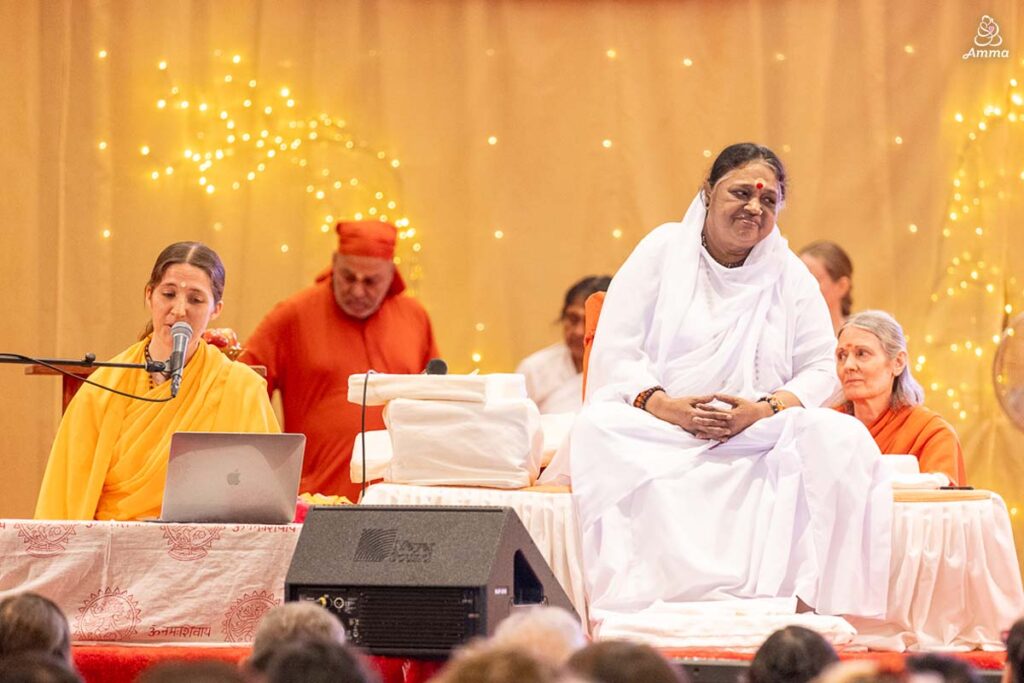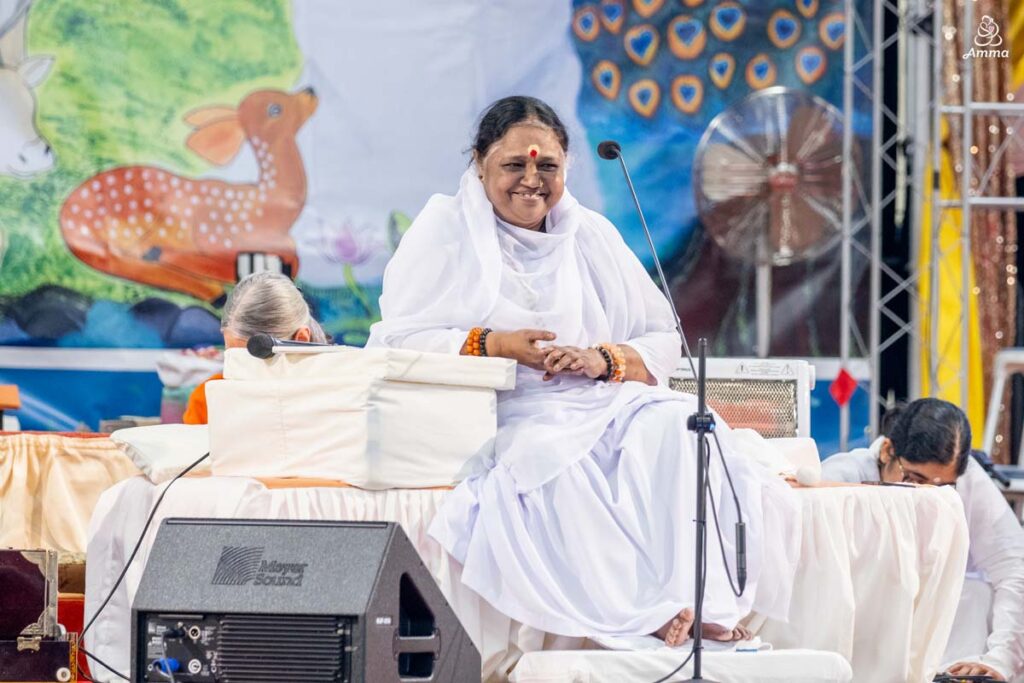India is currently seeing a massive increase in technology and wealth – with a 211% increase in wealth from 2000 to 2015 (source: India Times). However, poverty, illiteracy, sanitation health, and crimes against women persist despite this influx of wealth and advances in technology.
Speaking to this issue, Amma said, “A split personality is never a sign of sound health. If we want to see India become powerful and healthy again, we need to merge these two faces into one beautiful face.” Sustainable growth requires the advancement of the environment, equity, and education in addition to the growth of the economy.
Holding the vision for empowerment of all people Amma said, “If we can bring our collective knowledge, compassion and talent together, it will not be so long before we see India rising and thriving with peace, harmony, and prosperity.”
All over the world there is a trending pattern of wealth being generated in the cities while rural areas are ignored. Yet much of our resources, including food, come from these rural regions. Amma said, “Today we are just exploiting and casting them aside. It is time to acknowledge that our villages are our very foundation and move forward with one heart and one mind to protect and serve them.”
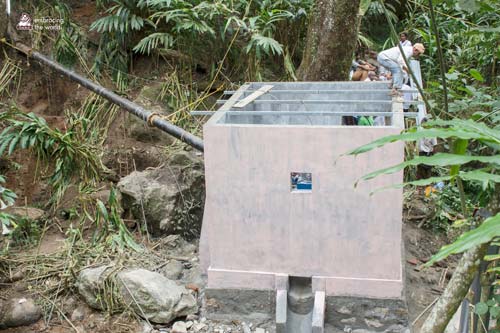
Our own Amrita University’s self-reliant village initiative attempts to address this issue. With seven focus areas of self-empowerment, health, agriculture, eco-friendly infrastructure, water and sanitation, income generation, and education, these villages are becoming role models for holistic sustainable development. Komalikudi, a tribal village in India’s southern state of Kerala, is one of our adopted villages. Residents worked alongside our volunteers as well as students and staff from our own Amrita University to improve village living conditions. Just like a third of India’s 600,000 villages, Komalikudi does not have access to electricity even though it is rich in natural resources. The team of residents, university students and staff, and volunteers worked together to harvest hydroelectric power and provide electricity to the tribal village.
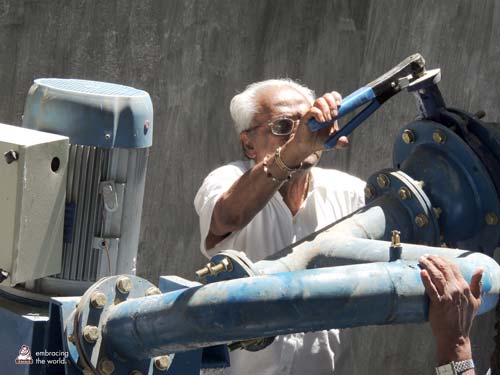
Today, Komalikudi residents benefit from access to electricity 24/7; every house in the village has plug points. With 7-watt energy efficient LED bulbs, activities no longer have to be stopped once the sun goes down. Vellamma, a volunteer for the village’s Anganwadi, a courtyard shelter that provides community services, said, “Now we have lights in the room so students can study at night – many thanks to Amma. We are so grateful to Amma for the support.” Mrs. Shobana, a Komalikudi vocational skills trainer, mirrored Vellamma’s statement by saying, “Earlier we had to stop our work by 5 pm as there was no light in the room. Now we have electricity so we can work at night. We are so grateful to Amma and her children for the help.”
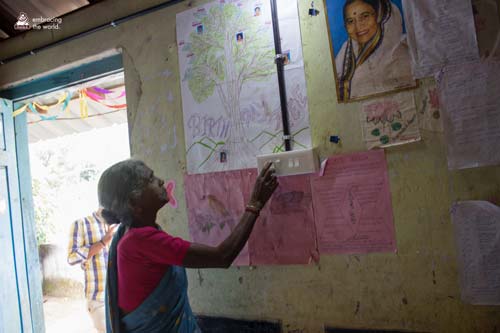
Additionally, micro hydro generators power a water distribution system in the village, including a bore well with a pump and two overhead water tanks connected to each cluster of homes. As a result, the entire village now has access to potable water year round. Access to potable water not only improves village health but also sanitation, enabling both children and adults the ability to practice better hygiene. Overall public health in the village has greatly increased.
With the successful completion of this project, our team was ecstatic. The students were thrilled to apply their theoretical knowledge in a hands-on project that also served others. The project not only provided practical solutions to the villager’s struggles, but it was also an inspiring collaboration that brought great joy to everyone involved as only selfless service can.


